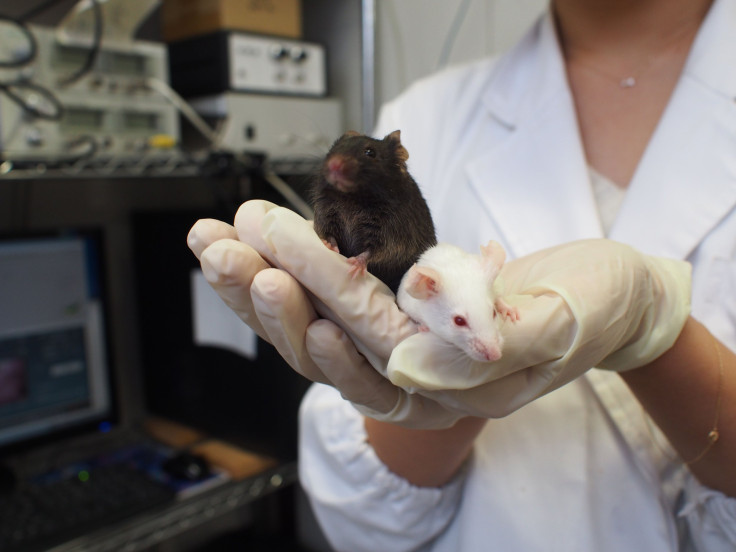Learned Behavior Or Instinct? Female Mice Choose Mates Based On Unfamiliar Songs

How do animals, specifically mice, avoid in-breeding? If your sleep is disturbed by such thoughts, know that a team of Japanese scientists has finally answered this burning question. When selecting a mate, female mice prefer the songs of males from different families than their own, an inclination that is shaped by experiences with their fathers. “Here, we show for the first time that female mice can discriminate among the distinct characteristics of male songs and prefer the songs of mice of strains different to those of their parents,” wrote the authors in a summary of their research published in PLOS One. “Moreover, we clearly demonstrate that song preference is acquired during early development through exposure to the presence of the father.”
Sexual imprinting, the process by which a young animal learns the characteristics of a desirable mate, has been a driving force for evolution. Key to imprinting ability is kin recognition, necessary to avoid mating with close relatives. When given a choice, female mice have been observed to prefer males whose major histocompatibility complexes (MHC) — a genetic system that allows large proteins in immune system cells to identify compatible or foreign proteins — are different from their own. It is also known that mating behaviors involve cues from multiple senses.
Researchers from Azabu University, Japan, decided to explore mating behaviors in mice, focusing specifically on male songs. When they encounter female mice, males emit ultrasonic vocalizations similar to the calls of songbirds; past studies, which demonstrate the female mice move toward and not away from the songs, have suggested these tunes are attractive and meant to inspire the female to mate. The scientists investigated whether female mice can remember and prefer specific male songs by using a test based on choice. First, the researchers recorded songs from four male mice, one of which was a close relative to the tested female. Next, the female mouse was placed in a cage with compartments containing not only the male songs but also their sexual scents. Then, the scientists recorded the time each female searched before making a selection. The various female mice included in the experimented had either been raised with their biological father, with an adopted father, or with no father at all.
How did the female mice respond? The researchers found the female mice innately preferred the tunes of mice from different families, a preference that was strongly influenced by her reproductive cycle and the scent-based sexual cues from the male. Yet female mice with no fathers showed no preference while those raised by non-biological fathers preferred songs from other families. Such results, then, suggest this is learned behavior. "These results clearly demonstrated that female preference for male songs depends on auditory exposure to the father’s presence during the pre-weaning period," the authors conclude.
Source: Asaba A, Okabe S, Nagasawa M, Kato M, Koshida N, et al. Developmental Social Environment Imprints Female Preference for Male Song in Mice. PLoS One. 2014.



























